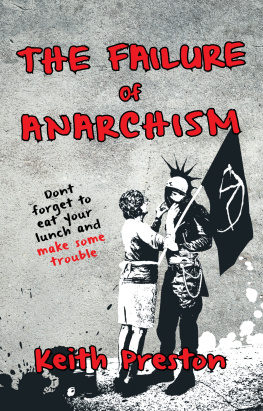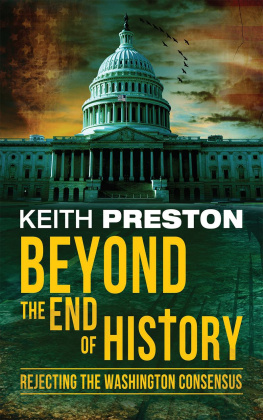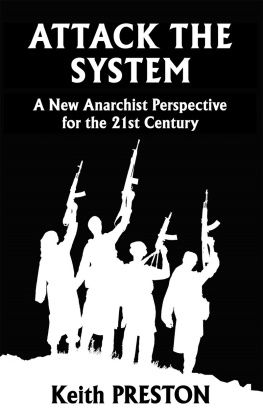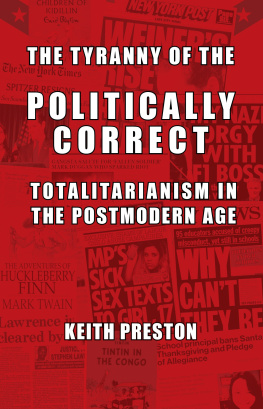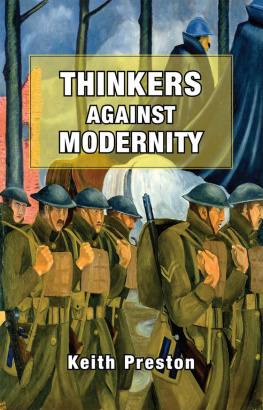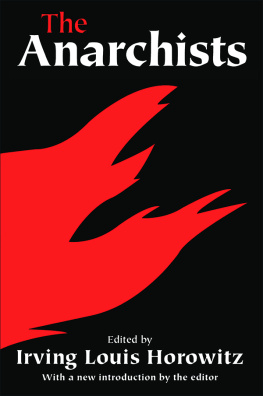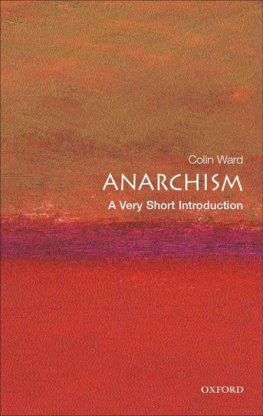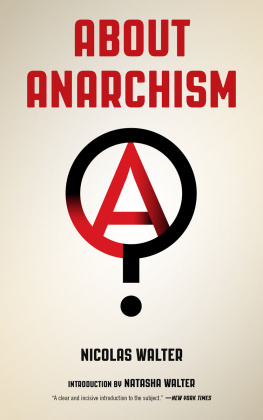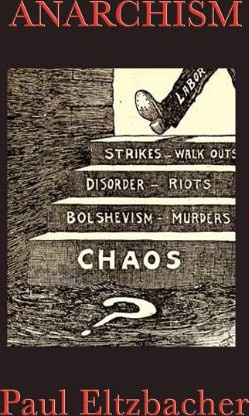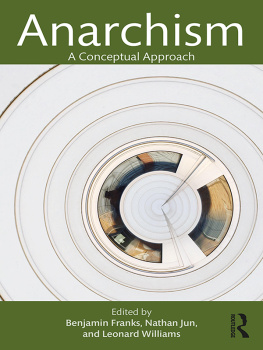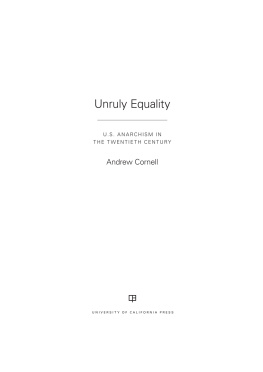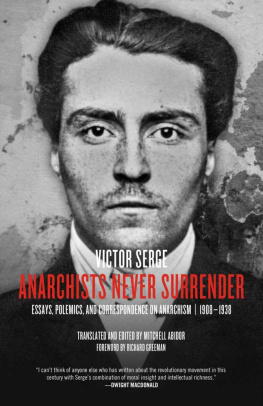The Failure of Anarchism
by Keith Preston
Copyright 2016 Black House Publishing Ltd
All rights reserved. No part of this book may be reproduced in any form by any electronic or mechanical means including photocopying, recording, or information storage and retrieval without permission in writing from the publisher.
Black House Publishing Ltd
Kemp House
152 City Road
London, United Kingdom
EC1V 2NX
www.blackhousepublishing.com
Email:
Introduction : Anarchism or Anarcho-Social Democracy?
A century ago, Anarchism was an international mass movement involving millions of adherents. Anarchists dominated the radical wing of the international labor movement. The anarchist communities that sprang up in nearly every major city were a conspicuous part of urban life as anarchists were a visible and recognized minority alongside various ethnic and religious groups. Over a twenty year period in the late nineteenth and early twentieth century anarchists assassinated the head of state in every major country. The very term anarchist struck fear into the heart of politicians, monarchs and robber barons everywhere. The ruling class never knew when or where the anarchists might strike again.
A few years ago, I came across a book on the historic anarchist movement, that claimed a unique characteristic of anarchism was its utter failure to achieve any of its objectives. I had to laugh. The reality of course is that anarchism was one of the most successful mass movements ever. Yes, the state has yet to be abolished. No nation to date has adopted the black flag as its own. Yes, the international bourgeoisie retain their power. Class rule is with us now as much as ever. However, when we look at the state of things in the industrialized world a century ago we see that history has indeed moved in our direction.
Anarchists were at the forefront of the movement for the eight-hour workday. The Haymarket martyrs gave their lives for this cause. At one point it was illegal to organize labor unions. Striking workers were regularly gunned down by government agents and private thugs. It was a federal crime in the United States to distribute information about contraception. Orphaned children were confined to slave-like conditions and used for medical experimentation along with the mentally handicapped, juvenile delinquents, homosexuals and others. Prison conditions often rivaled those of Nazi concentration camps. The death penalty was regularly imposed for burglary and grand larceny. People of African descent were regularly murdered and terrorized by gangs of racists while authorities looked the other way.
Anarchists were among the earliest and most militant opponents of all of these conditions. The eight-hour day, the right to organize unions, read sexually explicit literature, practice contraception and obtain abortions and engage in antiwar protests, prison reform and countless other rights and privileges that we take for granted today did not exist at the time of the classical anarchist movement. Roger Baldwin was inspired to found the American Civil Liberties Union after hearing a speech by the anarchist and pioneer womens rights advocate Emma Goldman. Anarchists were among the earliest opponents of the mistreatment of homosexuals as well. In many ways, things have advanced considerably over the past century.
Anarchism declined as a mass movement largely because of the treachery of the statist left. The Communist revolution in Russia of 1917 was a seeming success for the radical workers movement. Many workers began to drift towards Communism unaware that the Bolsheviks had stabbed the revolution in the back. The defeat of the Spanish anarchists through the combined efforts of the Fascists and Communists in the 1930s largely sounded the death knell for the historic anarchist movement. Today, anarchism largely consists of scattered handfuls of people operating on the fringe of the statist left opposition culture.
This is precisely the problem. Anarchists have yet to adapt themselves to the situation presented by the current world conditions and develop a comprehensive ideological framework through which the dominant political, economic and intellectual paradigms can be challenged. Typically, anarchists operate as if they were only another faction of the radical left, both politically and culturally. Today, anarchism is largely an amalgam of nostalgia for the classical movement (usually in the form of revolutionary groups that are by and large just history clubs), carry-over elements from the counter culture and New Left politics of the 1960s, the culture of political correctness developed by 1980s and 1990s liberals and social democrats, a type of Gandhi-wannabe non-violence rhetoric, the romanticizing of Third World revolutionary figures (including many decidedly non-anarchists), the punk rock subculture, an enthusiasm for critical theory and other hip intellectual trends and a general championing of every left-liberal popular cause yet to be invented.
The statist left is largely a discredited failure. Bourgeois social democracy has largely become the dominant ideology of the left wing of the ruling class and interest in Communist or other forms of far left opposition is largely non-existent outside of the world of academic neo-Marxists. Meanwhile, the resurgence of the libertarian right has become a powerful attraction for those looking for a movement to oppose the state. However penetrating the criticisms of the state advanced by the libertarian right may be, its decidedly bourgeois character ultimately prevents it from developing a comprehensive critique of class relations and the role of corporate power in maintaining modern systems of tyranny.
What is needed then is a new and improved form of anarchism that draws on the insights of the classical movement, corrects for its failings, expands its agenda and simultaneously utilizes the advances in historical study and economic science that have come about in recent decades. This would be an anarchism that rejects with equal fervor the statist left and corporate right and positions itself as diametrically opposed to the dominant left-right paradigm of contemporary political thought and discourse. This would involve a number of key changes in both contemporary anarchist ideology and strategy.
The first order of business for any form of serious anarchism must, of course, be opposition to the state itself. Many contemporary anarchists seem to have lost sight of this. Indeed, it is not uncommon for many of todays anarchists to take positions on the role of the state in society virtually indistinguishable from those of social democrats and even Communists. Even so perceptive an anarchist thinker as Noam Chomsky has fallen into this trap. The apparent enthusiasm of many so-called anarchists for the bourgeois welfare state, for example, indicates that they have not developed any critique of the state beyond that advanced by ordinary leftwing theoreticians who see the state merely as an expression of the economic power of the capitalist class. This view ignores the classical Bakuninist position that the state is a social class in and of itself with power and privilege beyond that of even the economic elite. The only serious critics of this aspect of the state these days appear to be the anarcho-capitalist theoreticians who have developed a critique of the state and big business far more radical and penetrating than that offered by anyone on the contemporary left. That so many of the contemporary urban poor have been enslaved and made wards of the state by the welfare plantation operated by the social democratic left while anarchists look on with utter obliviousness is indeed tragic. This is an issue where anarchists should be taking the ideological lead but has instead been left to black conservatives, the corporate right and minority nationalists like the Nation of Islam.

